A Complete Guide to ISO Certification in Nepal - Your Path to Global Excellence
Introduction
Maxicert is the trusted source for ISO Certification in Nepal, allowing organizations to dominate in Nepal and abroad by meeting the best standards for quality, safety, environment, and information security. Since 2010, we have helped more than 2,000 Nepali businesses achieve ISO compliance and simultaneously turned hopes into reality and profit.
The guide below will cover everything from interactive certification advisory to application of certification across industry in detail, the certification process from start to finish, the business viability and certification costs, business case and other results with respect to ISO Certification in Nepal.

Rationale for ISO Certification in Nepal
In the modern globalization age, ISO Certification is a credential for commitment to quality and credibility that can give businesses the ability to find new paths, build trust with customers, comply with regulations, and more. Businesses throughout Nepal, from new start-ups to manufacturers to services and exporters, are seeking ISO Certification for the same reasons to differentiate themselves in both domestic and international markets, qualify for lucrative government tenders, enhance operational efficiencies and create an ethos of continual improvement. By achieving ISO certification in Nepal can:
- Build customer confidence and brand reputation
- Enhance internal operations and mitigate risks
- Achieve compliance with legal regulatory requirements
- Reach global markets with International Organization for Standardization
- Become competitively advantaged over their non-certified competitors.
The Interactive Certification Finder
Tailored Selection for Maximum Benefit
Maxicert’s Interactive Certification Finder is designed to remove uncertainty and streamline the path to the right ISO standard. This user-friendly tool empowers businesses to:
- Select their industry (garments, manufacturing, tourism & hospitality, construction, IT & software, healthcare, pharmaceuticals, agriculture & food processing, education & training, financial services, and more).
- Define their business size (small: 1–20 employees, medium: 21–100 employees, large: 100+).
- Choose their location (Kathmandu, Pokhara, Biratnagar, Birgunj, other cities or rural areas).
How It Works
By inputting these specifics, organizations receive a customized recommendation on the most suitable ISO standard, along with:
- Primary ISO standard(s) recommended for their context.
- Estimated implementation timeline.
- Key, sector-specific benefits.
- Relevant success stories from similar Nepali enterprises, for inspiration and social proof.
This tailored approach removes guesswork, ensuring each business invests time and resources where it matters most, aligning ISO Certification in Nepal with unique operational needs and ambitions.
Trust Indicators - Maxicert’s Authority and Credibility
National and International Recognition
Maxicert’s position at the forefront of Nepal’s ISO consulting scene is underpinned by official recognition and powerful partnerships:
- Department of Industry (DOI) Recognition: All certifications issued are officially recognized for export license applications, government tender participation, foreign investment compliance, and industrial enterprise registration.
- Nepal Bureau of Standards & Metrology (NBSM): Maxicert collaborates to ensure all ISO solutions integrate local standards with rigorous international requirements, facilitating smooth regulatory approvals and market acceptance.
- FNCCI Platinum Membership: As a member of the Federation of Nepalese Chambers of Commerce and Industry, Maxicert regularly delivers workshops, advocates for progressive policies, and orchestrates networking events for ISO adopters.
- International Accreditations: Maxicert works with ISO certificates recognized by major world accreditation bodies—UKAS (United Kingdom), ANAB (United States), and DAkkS (Germany/EU). This guarantees wide acceptance in foreign markets and qualification for high-stakes public and private contracts.
Export Promotion Center Collaboration
Export-driven Nepali firms benefit from Maxicert’s close work with the Export Promotion Center:
- Support for trade documentation and compliance with global buyer requirements.
- Guidance for participation in international trade fairs and smoother trade facilitation.
Request A Free Quote
Types of ISO Certification in Nepal
- ISO 9001 Certification In Nepal
- ISO 14001 Certification In Nepal
- ISO 45001 Certification In Nepal
- ISO 27001 Certification In Nepal
- ISO 22000 Certification In Nepal
- ISO 17025 Certification In Nepal
- ISO 13485 Certification In Nepal
- ISO 20000-1 Certification In Nepal
- ISO 18001 Certification In Nepal
- ISO 50001 Certification In Nepal
- ISO 22301 Certification In Nepal
Other Certification In Nepal
- BIFMA Certification
- HACCP Certification
- CE Mark Certification
- HALAL Certification
- ROHS Certification
- GMP Certification
ISO Standards Directory - Nepal-centric Applications
ISO 9001 Nepal – Quality Management System
- Industry Applications: Manufacturing, Service Sector, Tourism & Hospitality.
- Manufacturing: Embeds quality control at every production stage. Strengthens supplier management for reliable raw material sourcing. Streamlines export documentation, reducing delays and ensuring compliance with buyer requirements. Measures and increases customer satisfaction. Achieves waste reduction and boosts productivity through leaner practices.
- Services Sector: Standardizes service delivery for consistently excellent customer experiences. Facilitates risk management and process performance measurement. Implements robust complaint handling and corrective/preventive actions. Develops specialized training to enhance staff skills and service quality.
- Tourism & Hospitality: Raises guest satisfaction with consistent service and hospitality protocols. Improves the quality and safety of food service operations. Establishes safety standards for tours, transport, and cultural presentations, vital for international guests.
- Implementation Timeline for ISO 9001: Small businesses: 3–4 months. Medium-sized: 4–6 months. Large organizations: 6–8 months.
- Benefits: 25–40% improvement in operational efficiency. 30–50% reduction in complaints and non-conformities. Better access to export markets and new business partners. Higher employee morale and retention. Eligibility for government contracts and tenders requiring ISO credentials.
ISO 14001 Nepal – Environmental Management System
Nepal’s rich biodiversity, sensitive ecological zones, and growing economy call for cautious, sustainable growth. ISO 14001 supports businesses in responsible stewardship.
- Tourism Sector: Reduces carbon footprint in hotels and resorts—crucial for tourism hotspots. Effective waste and water management in fragile environments (e.g., Chitwan, Annapurna). Promotes biodiversity conservation and responsible tourism practices that attract ecotourists and sustain local communities.
- Manufacturing Sector: Controls pollution, ensures chemical safety, and manages wastewater responsibly. Increases energy efficiency and drives resource conservation. Facilitates compliance with environmental regulations and enables green branding.
- Hydropower & Infrastructure: Enables meaningful Environmental Impact Assessments (EIA). Encourages transparent stakeholder engagement. Supports long-term monitoring of ecosystem impacts and restoration efforts.
- Benefits: 20–35% reduction in energy usage. 25–40% less waste, reducing landfill costs and improving community relationships. Improved access to green financing, carbon credits, and export opportunities requiring “green” credentials. Recognition via government environmental awards and enhanced corporate reputation.
ISO 45001 Nepal – Occupational Health & Safety
Worker safety and well-being are critical in Nepal’s challenging work environments.
- Construction Sector: Implements earthquake-resistant design standards and safety checks. Establishes high-altitude construction protocols, vital for projects in the Himalayas. Details emergency preparedness, hazard controls, and site safety audits.
- Manufacturing Sector: Ensures rigorous machine and chemical safety, preventing costly accidents. Trains teams in fire fighting, evacuation, and emergency response. Sets up continuous worker health monitoring programs.
- Healthcare Sector: Puts robust infection control protocols in place—a must for hospitals and clinics. Ensures the safety of medical equipment and patient handling, reducing error rates. Complies with national and international patient safety standards.
- Benefits: 40–60% fewer workplace accidents. 30–45% decline in workers’ compensation claims. Boosts employee morale, engagement, and productivity. Earns government recognition for safety best practices—a trust signal for clients and employees alike.
ISO 22000 Nepal – Food Safety Management
Food safety is of paramount concern in Nepal’s rapidly expanding food processing, hospitality, and export industries. ISO 22000 Nepal improves food safety at every step—harvesting, processing, transport, storage, and serving. It ensures compliance with strict buyer requirements in export markets (EU, Middle Eastern, and Asian countries) and integrates HACCP principles with ISO management system standards for holistic food safety. Benefits include fewer product recalls, higher customer trust, and improved access to lucrative food export markets.
ISO 27001 Nepal – Information Security Management
The digital economy in Nepal is flourishing, and so are information security risks. ISO 27001 Nepal enables organizations to:
- Secure customer data and digital payment systems, a requirement by Nepal Rastra Bank for banking and financial institutions.
- Protect IT assets, cloud services, and proprietary software for IT, e-commerce, and fintech companies.
- Safeguard citizen information and critical infrastructure in government organizations.
- Establish business continuity and disaster recovery plans—a must for resilience in crises.
- Benefits: Enhanced cybersecurity for banks, IT firms, and public institutions. Proves compliance with national IT regulations. Increases trust among domestic and international partners.
ISO 50001 Nepal – Energy Management System (Emerging Trend)
With Nepal’s focus on developing hydropower and sustainable energy solutions, ISO 50001 is gaining ground for organizations seeking to optimize energy use, track efficiency projects, and reduce operational costs.
Industry-Specific Adaptation: Integrated ISO Solutions
- Manufacturing: Industries such as garments, textiles, carpets, and handicrafts benefit from ISO 9001 for quality, ISO 14001 for environmental stewardship, and ISO 45001 for safe workplaces. Export-oriented manufacturers gain crucial competitive advantage by complying with buyer demands for certified systems.
- Tourism & Hospitality: Hotels, resorts, adventure operators, and eco-lodges thrive with integrated ISO 9001 (quality), ISO 22000 (food safety), and ISO 14001 (environmental) frameworks, differentiating themselves in the crowded South Asian tourism space.
- Construction & Engineering: High-mountain projects and infrastructure development require strict adherence to safety (ISO 45001), quality (ISO 9001), and environmental management (ISO 14001)—crucial in a country prone to earthquakes and landslides.
- Healthcare & Pharmaceuticals: Hospitals, clinics, drug manufacturing, and distribution achieve world-class safety (ISO 45001), patient care standards (ISO 9001), sanitation, and infection control—vital for local community trust and international healthcare partnerships.
- IT & Financial Services: Software development, IT consultancies, and fintech institutions secure data (ISO 27001), deliver consistent quality (ISO 9001), and offer reliable, complaint-free service.
- Agriculture & Food Processing: Farmers’ cooperatives, food exporters, and processors secure food chain traceability and safety with ISO 22000, improving access to premium markets and enhancing Nepal’s food industry reputation abroad.
- Education & Training: Schools, colleges, and training institutes standardize academic and administrative practices, support accreditation efforts, and attract parents and international partners through ISO 9001 compliance.
ISO Standards for Industries in Nepal
| Industry / Business | Applicable ISO Standard(s) |
|---|---|
| Manufacturing & Trading | ISO 9001 (Quality), ISO 14001 (Environment), ISO 45001 (Safety) |
| Food & Agriculture | ISO 22000 (Food Safety), HACCP, ISO 14001 |
| Healthcare & Pharmaceuticals | ISO 13485 (Medical Devices), ISO 9001, ISO 45001 |
| IT & Software Companies | ISO 27001 (Information Security), ISO 20000 (IT Service Management), ISO 9001 |
| Construction & Engineering | ISO 9001, ISO 14001, ISO 45001 |
| Education & Training | ISO 21001 (Education Management), ISO 9001 |
| Finance & Banking | ISO 27001, ISO 9001, ISO 22301 (Business Continuity) |
| Oil, Gas & Energy | ISO 50001 (Energy Management), ISO 45001, ISO 14001 |
| Hospitality & Tourism | ISO 9001, ISO 22000, ISO 14001 |
The ISO Certification Process - A Roadmap for Nepali Businesses
Maxicert follows a transparent, collaborative, and client-focused approach, ensuring that every organization receives solutions tailored to its unique needs. Our step-by-step roadmap clearly outlines the ISO certification process in Nepal, guiding businesses from initial consultation to successful certification with ease and efficiency.
-
01
Gap Analysis & Planning (Week 1) – Assess existing processes, workforce competency, and systems against the chosen ISO standard. Conduct awareness workshops to build understanding and buy-in.
-
02
Documentation Development (Weeks 2–4) – Prepare ISO-compliant manuals, SOPs, process maps, and records in both Nepali and English, ensuring practicality and user-friendliness.
-
03
Implementation & Training (Weeks 5–6) – Integrate ISO practices into daily operations with department-wise ISO training in Nepal, fostering a compliance-driven culture.
-
04
Internal Audit (Week 7) – Train internal auditors, provide audit checklists/tools, and conduct a mock audit to spot and fix compliance gaps.
-
05
Management Review (Week 8) – Leadership evaluates audit results, optimizes processes, and allocates resources for certification success.
-
06
External Certification Audit (Weeks 9–10) – Accredited ISO body reviews documentation and implementation; findings are addressed to achieve official certification.
-
07
Post-Certification Maintenance (Ongoing) – Support for surveillance audits, system updates, and continuous improvement to retain compliance.
-
08
Business Growth Support (Continuous) – Maxicert helps leverage ISO certification in Nepal for tender eligibility, exports, and stronger brand reputation.
ISO Investment Framework - Cost, ROI, and Payment Options
The ISO certification cost in Nepal is an investment that delivers measurable returns for businesses across industries. Several factors influence pricing:
- Factors Affecting Cost – Business size, industry complexity, and geographical location. A single ISO standard is more affordable, while integrated management systems deliver higher long-term savings.
- Cost Components – Expenses include pre-certification consultation, documentation, employee training, implementation support, and the third-party certification body audit.
- Flexible Payment Options – At Maxicert, we make certification accessible with phased payment plans. We also guide clients on government incentives, bank partnership programs, and cost-relief options.
- Return on Investment (ROI) – On average, Maxicert clients recover their ISO investment in Nepal within 12–18 months through improved efficiency, fewer errors, easier export compliance, and priority access to government contracts.
While exact figures may vary, businesses often search for Nepal ISO consultants’ cost to plan their certification journey effectively. Instead of fixed prices, consulting fees depend on company size, chosen standard, and project complexity. At Maxicert, we provide Free consultation to help organizations understand their needs and estimate the right approach before starting the certification process.
ISO Training & Academy - Building Capacity for Sustainable Success
Certification alone isn’t enough — long-term success depends on strong in-house expertise. Maxicert’s ISO Training Academy Nepal equips businesses with the right knowledge and skills.
Our Training Programs Include:
- Lead Auditor Programs – ISO 9001, ISO 14001, and ISO 45001.
- Internal Auditor Training – Foundation, intermediate, and advanced levels.
- Management Development Courses – Focused on leadership and strategic implementation.
- Specialized Industry Workshops – Tailored to the needs of manufacturing, healthcare, IT, tourism, and more.
With this training, Nepali companies can build internal capacity, ensuring compliance and sustainability beyond certification.
Local Success Stories - ISO in Action in Nepal
Real success proves the impact of ISO certification:
- Himalayan Garments Pvt. Ltd. (Kathmandu) – Solved chronic quality issues and export barriers through ISO 9001 Nepal certification, improving product quality by 35% and winning access to European buyers.
- Everest View Resort (Solukhumbu) – Adopted an integrated ISO 9001, ISO 14001, and ISO 22000 system. Guest satisfaction reached 4.8/5, earning recognition as a “Sustainable Tourism Model.”
- TechNepal Solutions (Lalitpur) – Secured ISO 9001 and ISO 27001 in Nepal, enabling partnerships with global software clients and government projects. Revenue tripled in two years.
- Nepal Medical College Hospital (Kathmandu) – Implemented multiple ISO standards with a focus on patient safety and infection prevention. Medical error rates reduced by 50%, building higher patient trust.
These stories highlight how ISO certification in Nepal helps businesses grow, innovate, and gain international recognition.
The Maxicert Advantage - Your Trusted Partner for ISO Certification in Nepal
In the ISO Certification world the biggest difference comes from who you choose as a partner. At Maxicert we don’t consider ourselves consultants; we consider ourselves long-term growth partners. As one of the Top ISO Certification Consultants in Nepal, Maxicert gives businesses the opportunity to achieve global recognition, improved efficiency and sustainable compliance.
This is why the most successful organizations choose Maxicert:
- Experienced – 2,000+ Organizations supported and successfully certified in various industries.
- 98% success in the first audit – The system we implement makes audits a formality.
- Bilingual (Nepali & English) – Our goal is to authorize certification solutions to every business in Nepal.
- Recognized globally and locally – The solutions we offer are consistent with the DOI Nepal requirements and accredited with global bodies.
- Full Service – All aspects are included from gap reports, to ISO audits, through to post-certification support.
Maxicert helps ISO Certification to be more than compliance but building trust, credibility and global competitiveness for your organization in Nepal.
Connect with Maxicert today and take the first step to certification excellence – The ISO Certification Partner in Nepal.
Conclusion
ISO certification is not just a Certificate—it’s a growth accelerator that empowers Nepalese businesses to achieve international standards, enhance customer trust, and secure long-term success. By partnering with Maxicert, you gain more than just certification—you gain a strategic partner dedicated to simplifying every step of the process, from documentation to training and audits, ensuring cost transparency and lasting value.
Now is the time for your company to stand out in the competitive market, win government tenders, and expand globally with confidence.
Start your ISO Journey today with Maxicert—Nepal’s trusted ISO Certification partner. From the first consultation to the final audit, we ensure a smooth, transparent, and result-driven process that elevates your business to international standards. Apply online with Maxicert and take the first step toward global recognition
FAQ
What is ISO and Why is It Important for Businesses in Nepal?
Parceling out recognized standards is what ISO does suitably for businesses all around the world through normal and process-based standards for management systems. ISO Certification demonstrates the ability of operational excellence for Nepalese and other businesses, an excellent tool for opening doors for exporting, and establishing credibility in the minds of customers and governments.
How Long Does It Take to Get ISO Certified?
It typically takes 3-4 months for small organizations, 4-6 months for medium-sized, and 6-8 months for large organizations.
What are the maintenance requirements?
ISO Certification must be maintained through “surveillance” audits each year and ongoing maintenance of your system.
What are the most common ISO standards adopted in Nepal?
ISO 9001 (Quality), ISO 14001 (Environmental), ISO 45001 (Safety), ISO 27001 (Information Security), and ISO 22000 (Food Safety).
Is ISO Certification compulsory?
ISO is a business enabler for most sectors, but not compulsory. It is essential to obtain ISO Certification for specific commodity exports internationally and many regulated/client audited sectors.
What does the cost look like for ISO Certification in Nepal?
The cost of ISO Certification in Nepal depends on the costs associated with the size of your business, the nature of the industry and the ISO standard. Maxicert offers estimates based on the number of employees in your business and they allow payment options to fit your needs.
Client Testimonials
What Our Clients Say About Us?
We are trusted by thousands of clients belonging from technology, manufacturing, healthcare and various sectors
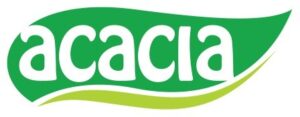

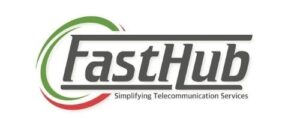

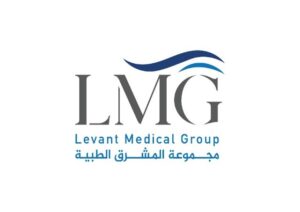

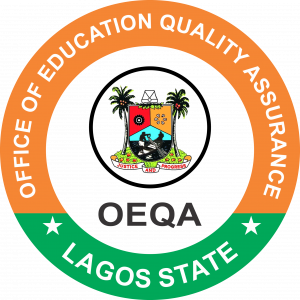
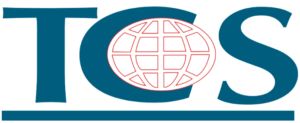
Our overall experience with Maxicert was satisfied. The audit and consulting part was handled carefully, we fulfilled our client requirement of ISO 27001 hassle free.
Kevin Santiago BDM – Clarks Outsourcing, PhilippinesTimely response and knowledge of ISO standards can be seen together in the team of Maxicert, we grow because of the service providers like Maxicert.
Samuel Christopher Quality Assurance Head – OEQA, NigeriaWe did Food safety certification with Maxicert, the service was extraordinary and their consultant had good experience of the subject.
Mr. Venkatesh Production Manager - Acacia Foods and Beverages, ZambiaWe engaged a consultant of Maxicert for our business certification, we now have a well-designed and organized department procedures and we rectify our errors through internal audits regularly.
Abdullah Al Rayes Managing Director – TCS, BahrainTechnical expertise by the team of Maxicert helped us achieving our ISO 13485 certificates, we now proudly say that we have achieved our target, all thanks to the team.
Nady Boustany CEO – LMG, IraqMaxiCert's approach to meet our needs proved instrumental in facilitating a seamless transition throughout the entire ISO certification process for us. Their training sessions are so much helpful.
Ms. Latifa Al Salem Investor portfolio – Ministry of Investment, Saudi ArabiaMaxicert is a one stop solution, we got trainings, documents, audit and certification at one place, they facilitated everything.
Ms. Mariam Chaggama VP – Fasthub, Tanzania





Their presence in Oman made us even better to accomplish our goal of achieving ISO certificates on time, we will definitely recommend their services.
Mr. Sailesh Mohanakrishnan Division Manager – Khimji Ramdas, Oman